
IREG 2025 Conference
University Rankings and Challenges of Sustainability
at Abu Dhabi University, UAE
PROGRAM
(as of 27 August 2025)
9 December 2025 (Tuesday)
Venue: Emirates Palace Hotel
17:00 – 18:30 Ordinary General Assembly of IREG Observatory
18:30 – 20:00 IREG Welcome Reception
10 December 2025 (Wednesday)
Venue: Emirates Palace Hotel
8:30-10:00 Registration and Wecome Coffee10:00-11:30 Inaugural Session
- Prof. Ghassan Fouad Aouad, Conference Advisor - Chancellor of Abu Dhabi University (UAE)
- Waldemar Siwinski, President, IREG Observatory on Academic Ranking and Excellence (Poland)
11:30-12:30 ICASF Panel
Overview: This high-level panel brings together university leaders to explore how leadership in higher education is transforming in response to global challenges. The conversation will focus on how institutional strategies are being reshaped to promote a more sustainable world and an inclusive society, emphasizing innovation, policy leadership, and cross-border collaboration.
SDG Alignment: The session aligns closely with Sustainable Development Goal 4 on quality education, Goal 10 on reduced inequalities, Goal 13 on climate action, and Goal 17 on partnerships for the goals. It reflects the growing commitment of higher education institutions to integrate sustainability and inclusivity into their core missions.
Objectives: The objective of this session is to highlight presidential perspectives on driving systemic change within universities to align with the UN Sustainable Development Goals. It aims to showcase leadership strategies that promote sustainability, equity, and global impact in higher education.
Moderator
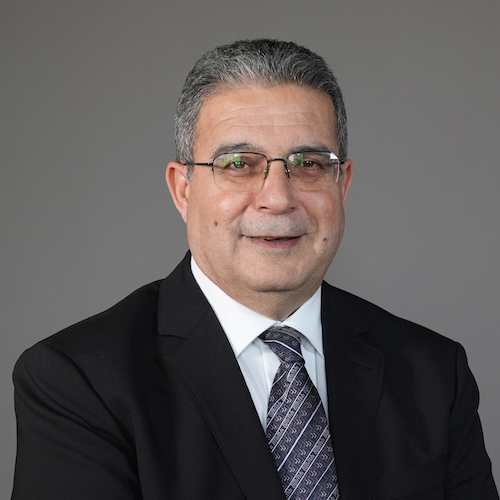
Prof. Ghassan Aouad
Chancellor, Abu Dhabi University (UAE)
Speakers
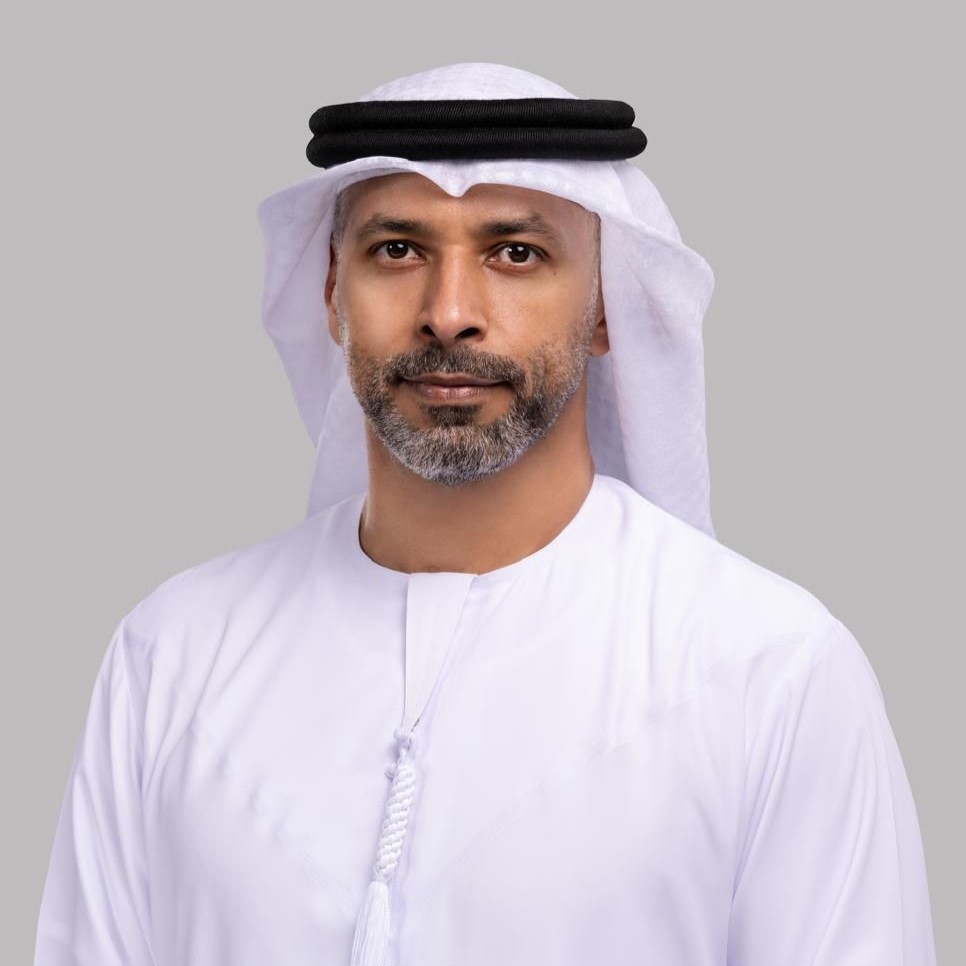
H.E. Prof. Ebrahim Al Hajri
President, Khalifa University of Science and Technology (UAE)
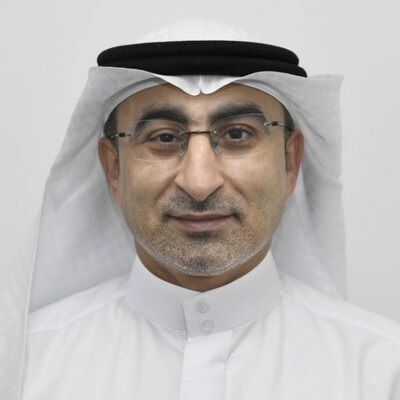
Prof. Ahmed Al Raeesi
Vice Chancellor, United Arab Emirates University (UAE)
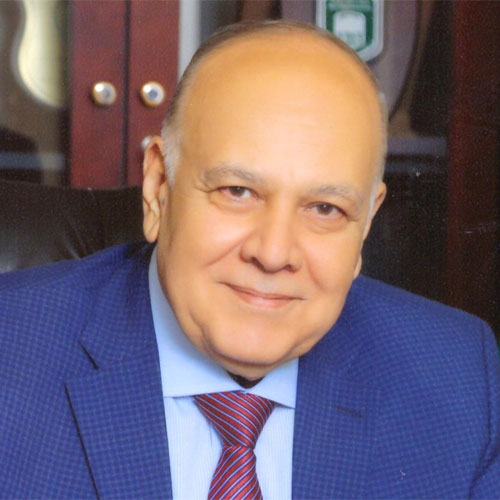
H.E. Prof. Amr Ezzat Salama
Secretary General, Association of Arab Universities (Jordan)
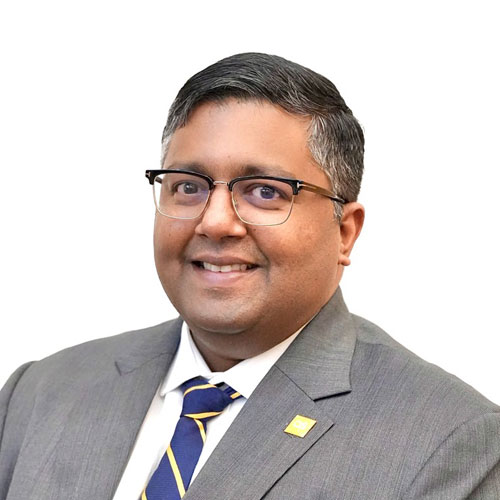
Dr. Ashwin Fernandes
Executive Director (AMESA), QS Quacquarelli Symonds (UK)
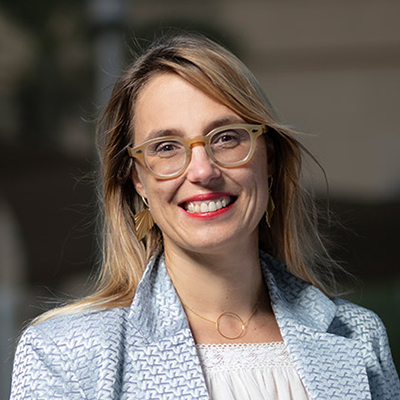
Prof. Nathalie Martial-Braz
Chancellor, Sorbonne University Abu Dhabi (UAE)

Prof. Lolowa Al Marzooqi
Associate Vice Provost, Office of Undergraduate Education, NYU Abu Dhabi (UAE)
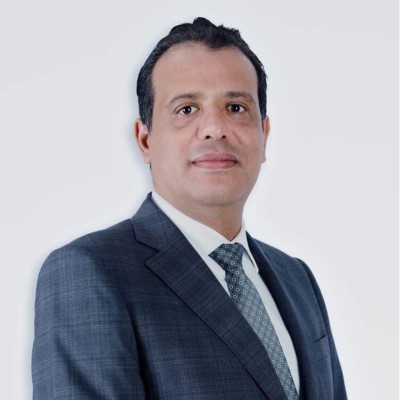
Prof. Mohamed Dhiaf
President, Liwa University (UAE)
12:30–13:00 Special Session
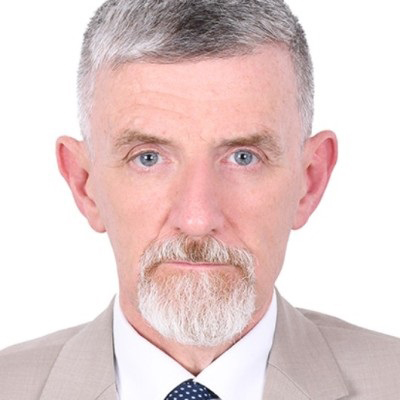
Mr. Derek Gliddon
Director of Environmental Science Development at the Environment Agency - Abu Dhabi (UAE)
13:00–14:00 Lunch Break
14:00-15:00  Panel
Panel
Overview: University leaders from different parts of the world will discuss how to navigate rankings challenges in designing a strategy for their university. Some universities have expressed their disapproval of rankings, others look for new approaches to evaluation of research... There will be an opportunity to vent out different opinions.
SDG Alignment: This panel aligns with several key Sustainable Development Goals, particularly SDG 4 – Quality Education, by fostering discussions on how universities can maintain high standards of teaching and research without becoming overly dependent on external ranking systems. It also supports SDG 9 – Industry, Innovation, and Infrastructure, as it encourages institutions to explore innovative approaches to institutional assessment, performance measurement, and strategic planning. Additionally, SDG 17 – Partnerships for the Goals is reflected in the call for global dialogue and collaboration to create more inclusive, transparent, and context-sensitive evaluation frameworks that better serve the diverse missions of higher education institutions.
Objectives: The objective of this panel is to examine the complex relationship between global university rankings and institutional strategy. It aims to explore how different universities navigate the opportunities and challenges rankings present, share insights into the risks of becoming overly rankings-driven, and discuss alternative approaches to evaluating academic quality, research impact, and institutional success. The session encourages candid exchange, critical reflection, and collective problem-solving to help university leaders shape strategies that align with their core values while remaining competitive and relevant in a global academic landscape.
Moderator
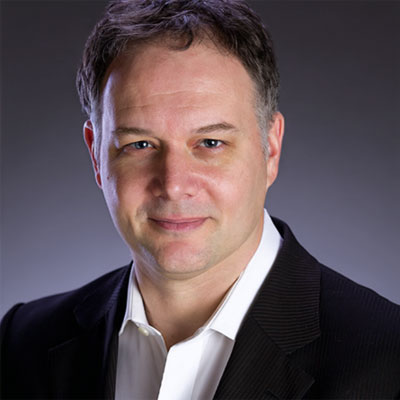
Mr. Alex Usher
President of Higher Education Strategy Associates (Canada)
Speakers
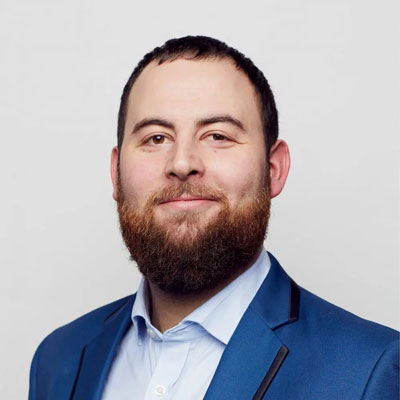
Mr. Nick Davis
President, Middle East & Africa, THE Times Higher Education (UK)
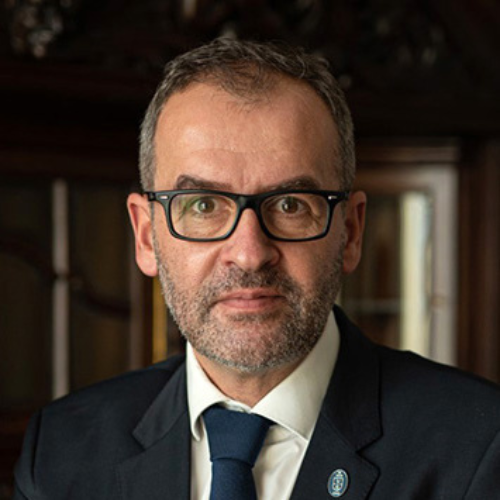
Prof. Piotr Stepnowski
Rector, University of Gdansk (Poland)
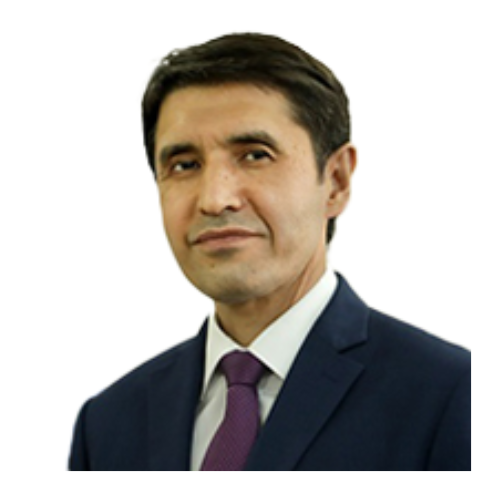
Prof. Komiljon Karimov
Rector, Westminster International University in Tashkent (Uzbekistan)
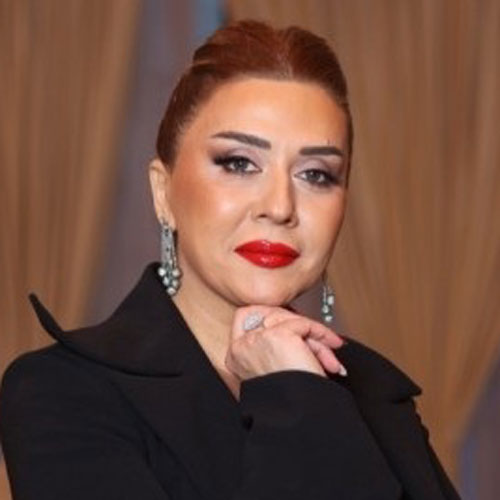
Prof. Ulviyya Abbasova
Advisor to the Rector on Rankings, Azerbaijan State Oil and Industry University (Azerbaijan)
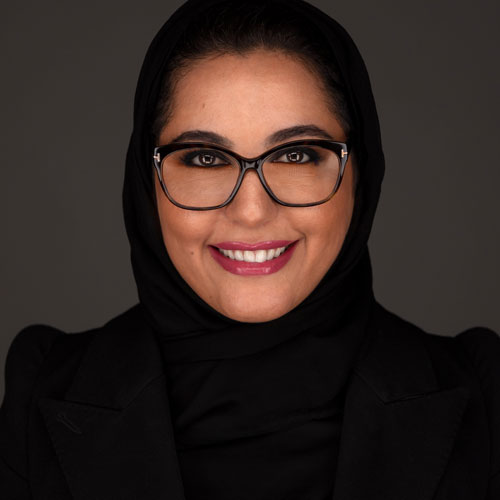
Dr. Bibi Alajmi
Assistant Vice President for Planning, Kuwait University (Kuwait)
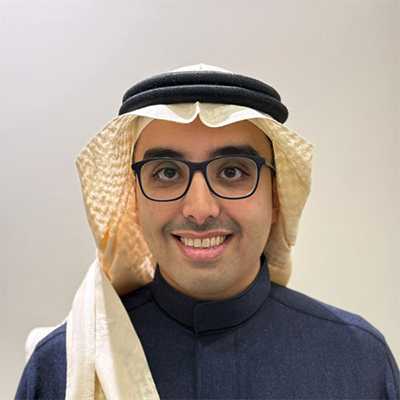
Dr. Mohammed S. Alqahtani
Vice Dean for Research and Innovation (DRGS), King Khalid University (Saudi Arabia)
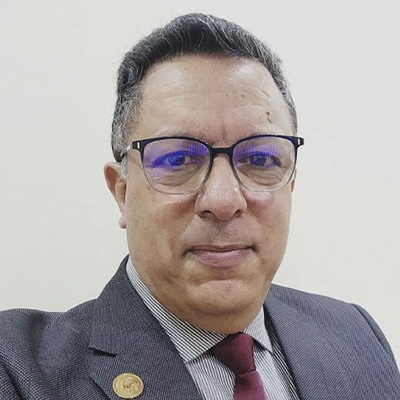
Prof. Abdelmajid Benamara
Secretary General, Federation of Arab Scientific Research Councils (Morocco)
15:00-16:00 ICASF Panel
Overview: This panel will discuss how strategic collaborations between industry, academia, and government can drive the next phase of the Green Revolution, fostering scalable solutions for global sustainability. The conversation will highlight the strengths of each sector and how they can work together to innovate green technologies and policies.
SDG Alignment: The panel ties into SDG 8 (Decent Work and Economic Growth) by addressing how partnerships can create green jobs and sustainable economic growth. It also aligns with SDG 9 (Industry, Innovation, and Infrastructure), focusing on the role of innovation in creating sustainable industries, and SDG 17 (Partnerships for the Goals), as the collaboration between industry, academia, and government is essential for achieving global sustainability objectives.
Objectives: This panel aims to explore how effective collaborations between academia, industry, and government can accelerate innovation and scale up sustainable solutions. It will identify the opportunities for these sectors to work together in addressing environmental and social challenges, as well as highlight the roles each sector must play to drive global sustainable development and ensure long-term environmental impact.
Moderator

Prof. Barry O’Mahony
Provost, Abu Dhabi University (UAE)
Speakers
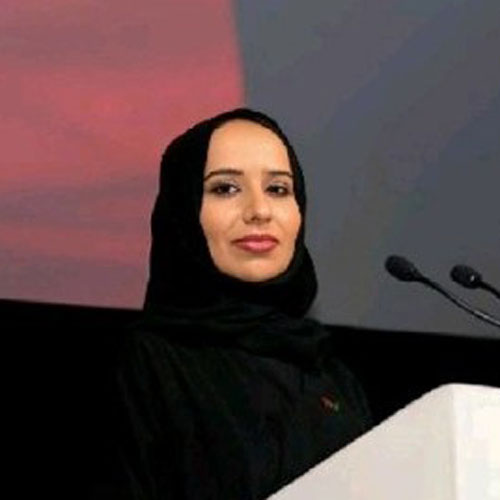
Dr. Sara Al Dallal
President, Emirates Health Economics Society at Emirates Medical Association (UAE)
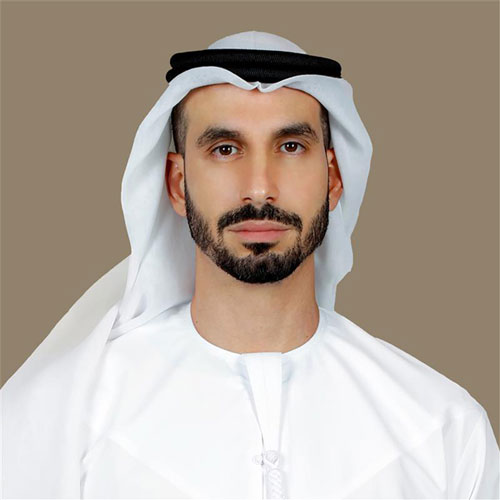
H.E. Fady Shaher El Borno
Executive Director, The Department of Municipalities and Transport (UAE)

Prof. Benjamin P. Horton
Dean, School of Energy and Environment, Chair Professor, Earth Science, City University of Hong Kong (China)
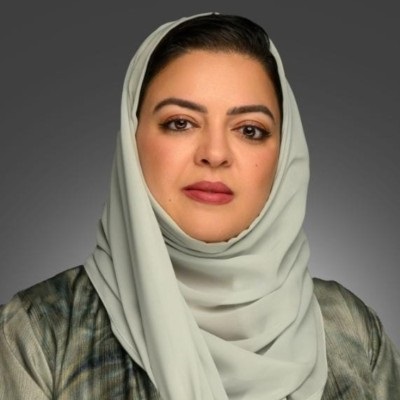
Ms. Sara Shaw
CEO, Majra – National CSR Fund (UAE)
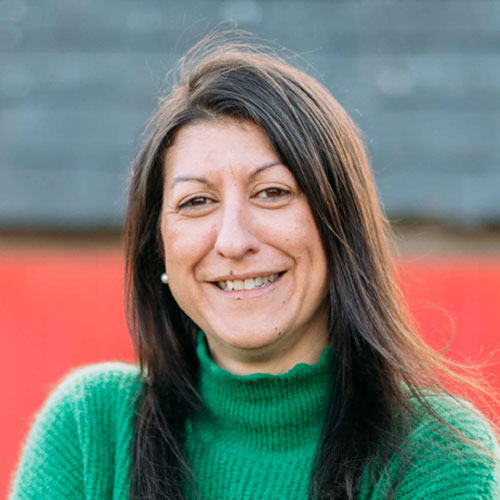
Ms. Raquel Noboa
Founder, Fifty Shades Greener (Ireland)
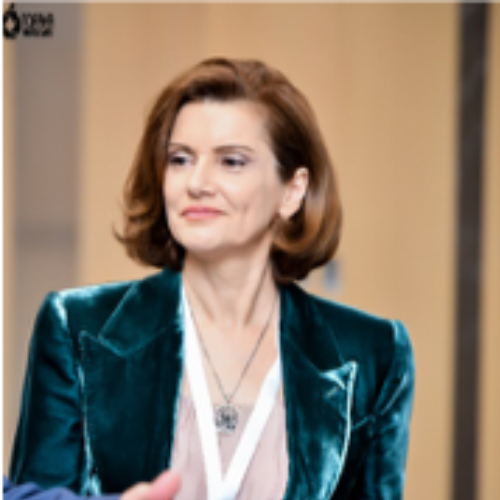
Dr. Susanna Karakhanyan
Higher Education Regulation & Licensing Director, Abu Dhabi Department of Education and Knowledge (UAE)
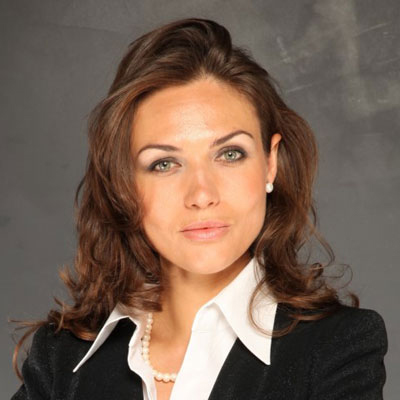
Ms. Magdalena Filcek
Founder of Vinci Power Nap® technology. MA designer / Neurorachitect (Poland)
15:00-16:00 
Driving Innovation Ecosystems: The Role of Fourth Generation Universities
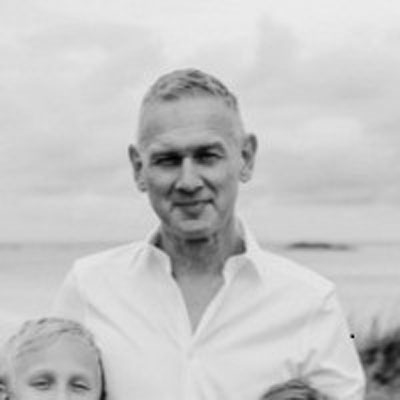
Mr. Scott Rutherford
Principal Consultant at 4GU, Elsevier (Netherlands)
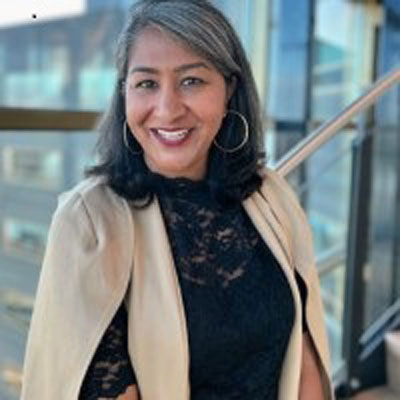
Ms. Shruti Desai
Sr. Manager, 4GU Community Engagement, Elsevier (Netherlands)
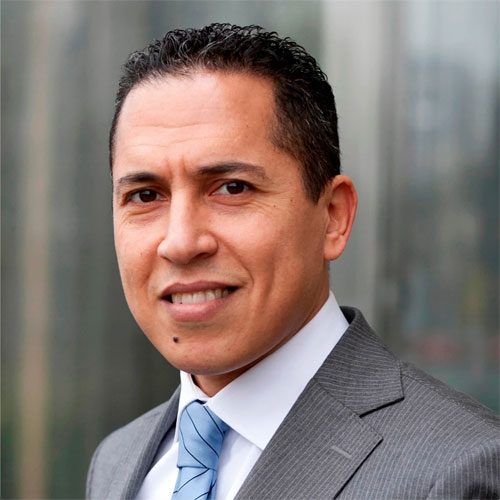
Dr. M’hamed El Aisati
Vice President Analytics & Data Services, Elsevier (Netherlands)

Prof. Ghassan Aouad
Conference Advisor - Chancellor of Abu Dhabi University (UAE)
16:00-17:00  Panel
Panel
Overview: Regardless their shortcomings, rankings have become an important part of the higher education landscape. Authors of global and regional university rankings will present their rankings characteristics and directions. There will be time for “difficult” questions from the audience.
SDG Alignment: This panel aligns with SDG 4 (Quality Education) by promoting transparency in academic evaluation, SDG 9 (Industry, Innovation, and Infrastructure) through discussion on innovative ranking methodologies, and SDG 17 (Partnerships for the Goals) by fostering dialogue between universities and ranking bodies.
Objectives: Offer universities direct insight into the methodologies, metrics, and strategic goals behind global and regional ranking systems. It aims to clarify how rankings are evolving, what data matters most, and how institutions can align their strategies accordingly. By engaging ranking authors in open dialogue—including addressing tough questions—the session empowers university leaders to make informed decisions, strengthen their positioning, and contribute to shaping more balanced and meaningful evaluation frameworks.
Moderator
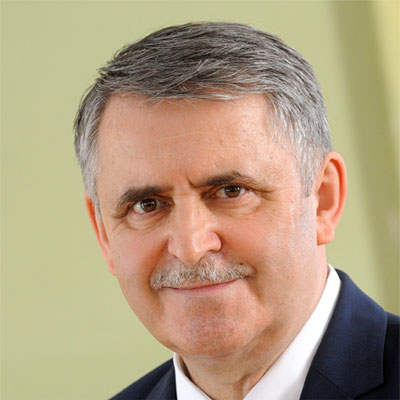
Mr. Waldemar Siwiński
President, IREG Observatory on Academic Ranking and Excellence (Poland)
Speakers

Prof. Ghassan Aouad
Chancellor, Abu Dhabi University (UAE)
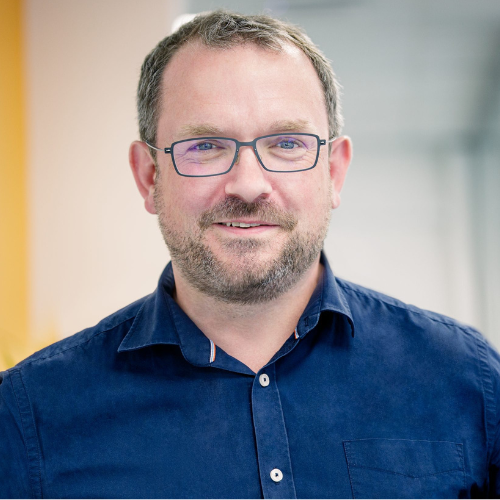
Mr. Ben Sowter
Vice President, QS Quacquarelli Symonds (UK)
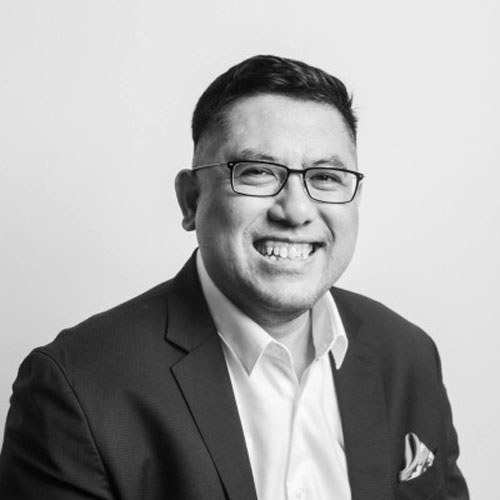
Dr. Vishnu Juwono
Chair, UI GreenMetric World University Rankings (Indonesia)
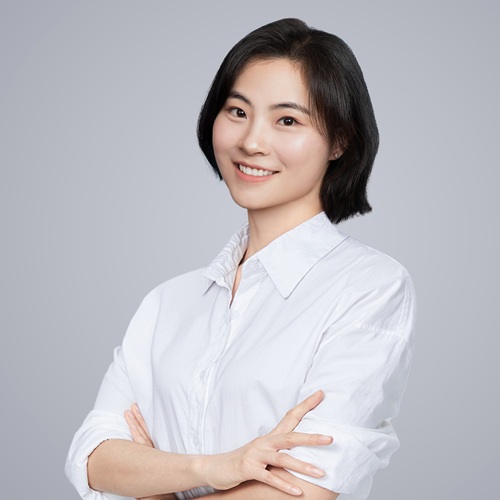
Ms. Xue Yang
Senior Consultant, Shanghai Ranking Consultancy (China)
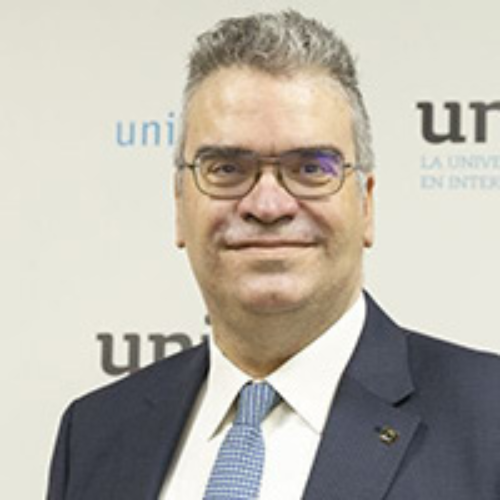
Mr. Isidro F. Aguillo
Head of Cybermetric Lab, Scimago Group, Webometrics (Spain)
17:00-17:30 Coffee Break
17:00-18:00 

Beyond the Metrics: Ensuring Research Integrity and Data Quality in Global University Rankings
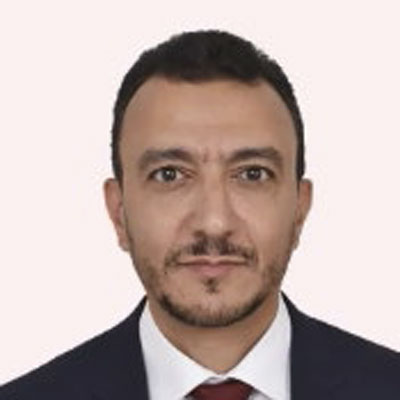
Mr. Wael Mansour
Senior Customer Success Manager-Middle East, Elsevier (Netherlands)
11 December 2025 (Thursday)
Venue: Emirates Palace Hotel
8:30-9:00 Registration and Welcome coffee
9:00-10:00 Opening remarks, Keynote Speeches
10:00-11:00 ICASF Panel
Overview: This panel will focus on the crucial role women play in leading sustainability initiatives at the intersection of technology, society, and nature. It will celebrate women leaders and discuss the challenges and opportunities they encounter while driving sustainability in various sectors.
SDG Alignment: The discussion aligns with SDG 5 (Gender Equality) by empowering women in leadership roles within sustainability. It also supports SDG 10 (Reduced Inequality), as it highlights the need for greater inclusion of women in innovation and decision-making processes. Additionally, it ties into SDG 13 (Climate Action), recognizing the critical role women play in addressing environmental challenges through innovative leadership.
Objectives: This panel aims to showcase the significant contributions of women in sustainability and highlight the challenges they face in leading innovation at the intersection of technology and nature. It will discuss the barriers and enablers for empowering women in sustainability, and explore policies and practices that can support gender equality in the green economy, helping to create a more inclusive and diverse approach to innovation in sustainability.
Moderator

Prof. Ghassan Aouad
Chancellor, Abu Dhabi University (UAE)
Speakers
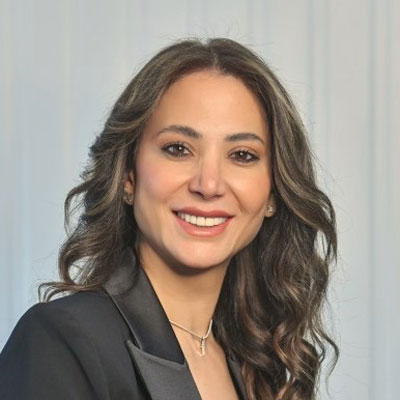
Dr. Danielle Khalife
Dean, USEK School of Business at Holy Spirit University of Kaslik (Lebanon)
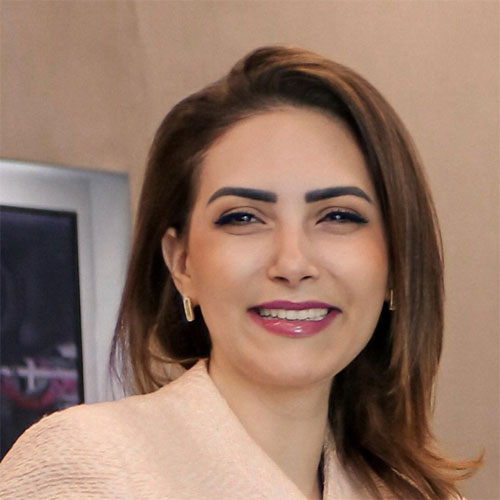
Mrs. Sajeda Shawa
Head of the United Nations Office for the Coordination of Humanitarian Affairs UNOCHA (UAE)
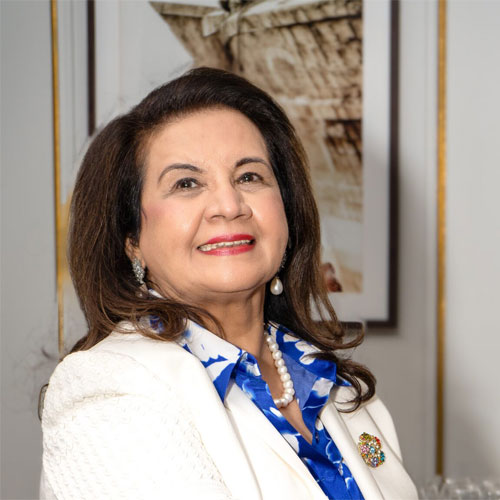
Dr. Mariam Shaikh
Founder and CEO, MS Education Consultants (UAE)
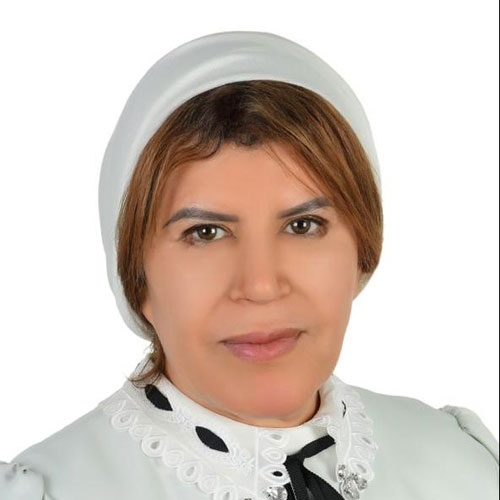
Dr. Omelkheir Mazouz
Executive Board Member, Sheikha Fatima Fund (UAE)
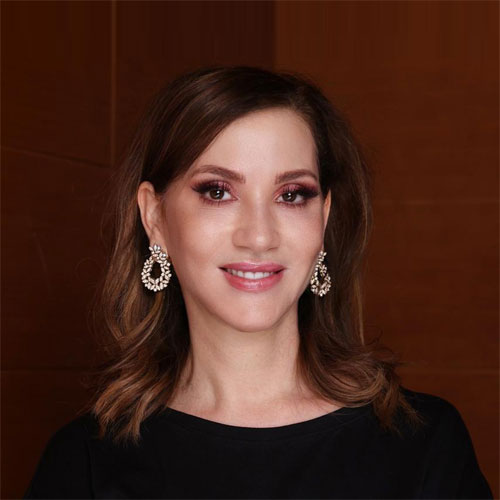
Dr. Dima Jamali
Dean, Adnan Kassar School of Business, Canadian University Dubai (Lebanon)

Lt. Col. Dana Humaid
Director General - International Affairs Bureau, Ministry of Interior (UAE)
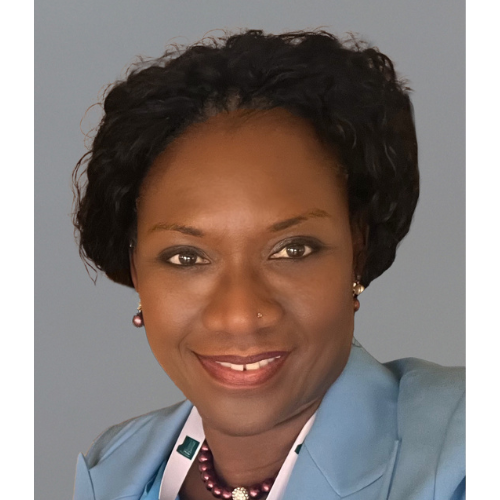
Mrs. Allison Hamilton
Director, Talent Empowerment and Growth Department, Abu Dhabi University (UAE)
11:00-11:30 Special Session
Speakers
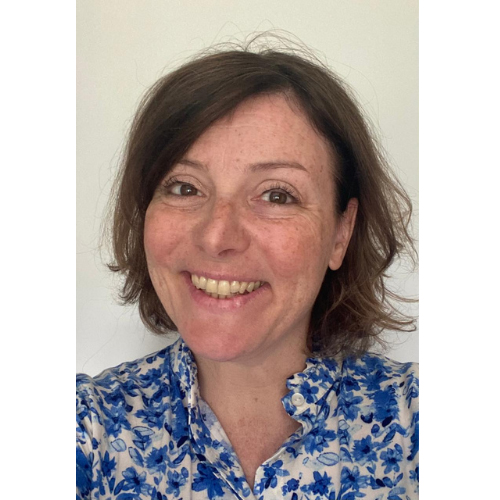
Ms. Emma Wildsmith
Publishing Services Programme Lead, Emerald Group Publishing (UK)
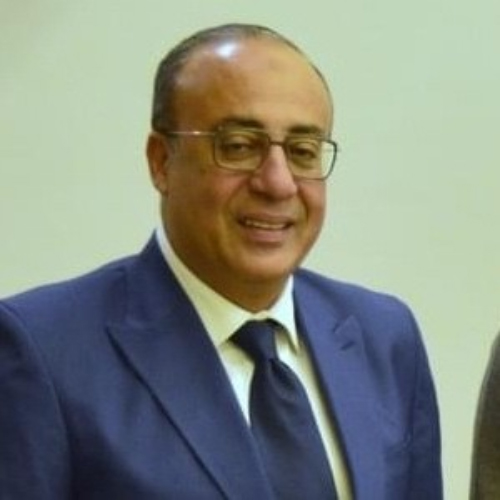
Mr. Ramy Hassanien
Vice President and Regional Director – Middle East, Africa & Central Asia, Emerald Group Publishing (UK)
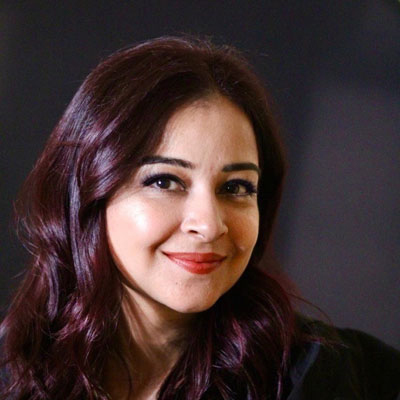
Ms. Amina Said
Business Manager at Emerald Group Publishing (UAE)
11:30-12:30  Panel
Panel
Overview: The session is aimed primarily at university officers responsible for reading and interpreting rankings, collecting data and answering surveys or questionnaires sent Meet the Rankers – Global and Regional. Learn what are they plotting? Find out by ranking organizations. Experts with long career will share their professional experience in advising university leadership on how rankings help define current university position and set goals for strategic development.
SDG Alignment: This session strongly aligns with SDG 4 – Quality Education by encouraging universities to use rankings as a tool to enhance institutional effectiveness and educational quality. It also supports SDG 9 – Industry, Innovation, and Infrastructure, as it explores how innovative ranking metrics can reflect a university’s research, sustainability efforts, and societal impact. Furthermore, it promotes SDG 17 – Partnerships for the Goals, by fostering collaboration between ranking agencies and institutions to co-create transparent, inclusive, and forward-looking frameworks for assessing academic performance and impact.
Objectives: The objective of this panel is to equip university officers and strategists with a deeper understanding of how to engage with rankings more effectively and purposefully. Through insights from ranking organizations and seasoned advisors, the session will highlight how rankings can serve not only as a benchmarking tool but also as a guide for strategic development—particularly in advancing sustainability and innovation. It aims to shift the perception of rankings from a competitive pressure point to a strategic asset that supports a university’s mission, direction, and global standing.
Moderator
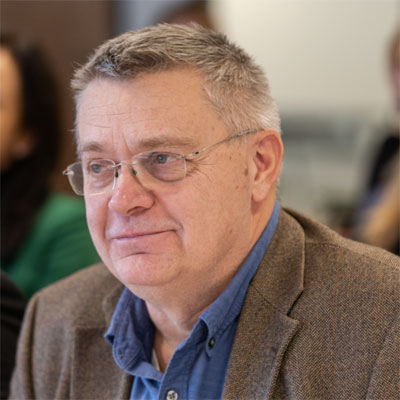
Prof. György Fábri
Professor at Social Communication Research Group, Eötvös Loránd University ELTE, Budapest (Hungary)
Speakers
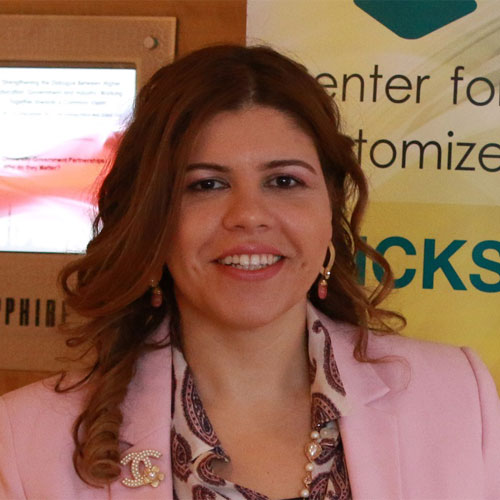
Dr. Narimane Hadj Hamou
Founder and CEO, CLICKS (UAE)

Dr. M'hamed El Aisati
Vice President Analytics & Data Services, Elsevier (Netherlands)
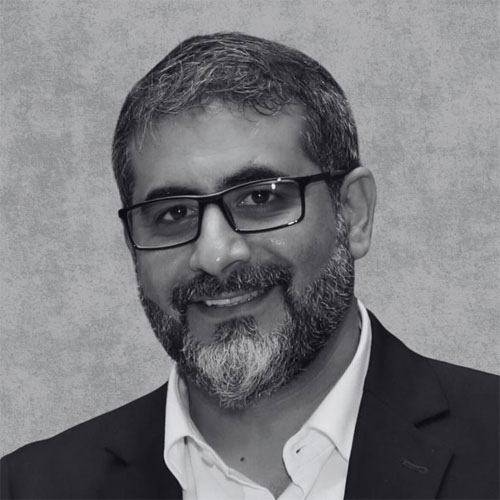
Dr. Habib Fardoun
Excellence Consulting for Education, QS Quacquarelli Symonds (Spain)
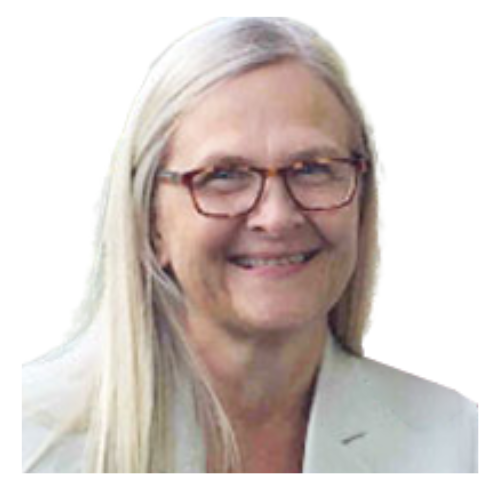
Ms. Birte Hornemann
Director, Quality Assurance and Ranking Aalborg University (Denmark)
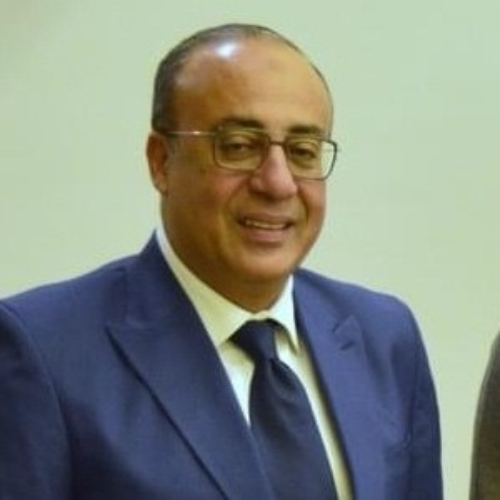
Mr. Ramy Hassanien
Vice President and Regional Director – Middle East, Africa & Central Asia at Emerald Group Publishing (UK)
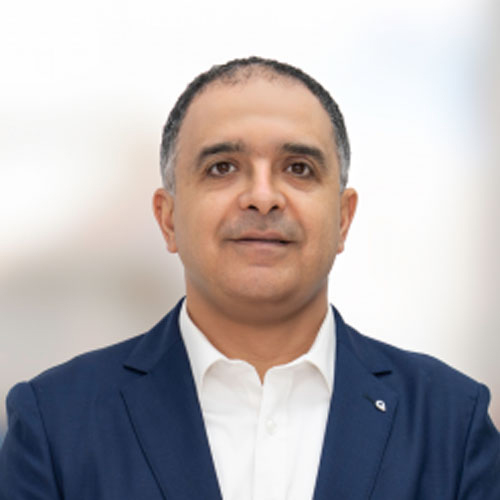
Dr. Nazih Khaddaj Mallat
Vice President, Accreditation and Quality Assurance, Al Ain University (UAE)
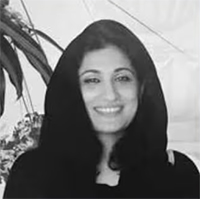
Dr. Maryam Riaz
Advisor, Higher Education Affairs, Ministry of Higher Education & Scientific Research (UAE)
13:00-14:00 Lunch Break
14:00-15:00 ICASF Panel
Overview: This discussion will explore how artificial intelligence (AI) can drive sustainable innovation, tackle global challenges, and shape a better future for society. The panel will also address the ethical considerations, challenges, and opportunities presented by AI in sustainability efforts.
SDG Alignment: This panel aligns with SDG 9 (Industry, Innovation, and Infrastructure), as AI is central to driving technological innovation. It also supports SDG 13 (Climate Action) by addressing how AI can be leveraged to develop solutions for sustainability challenges. Additionally, it connects to SDG 16 (Peace, Justice, and Strong Institutions), as the ethical implications of AI in shaping sustainable futures need to be carefully managed for equitable development.
Objectives: The objective of this panel is to examine how AI can contribute to solving global sustainability challenges by enabling more efficient and innovative solutions. The discussion will also delve into the ethical considerations and societal impacts of AI technologies in sustainability initiatives. Furthermore, it will identify opportunities and risks in using AI to shape a sustainable and equitable future for all.
Moderator
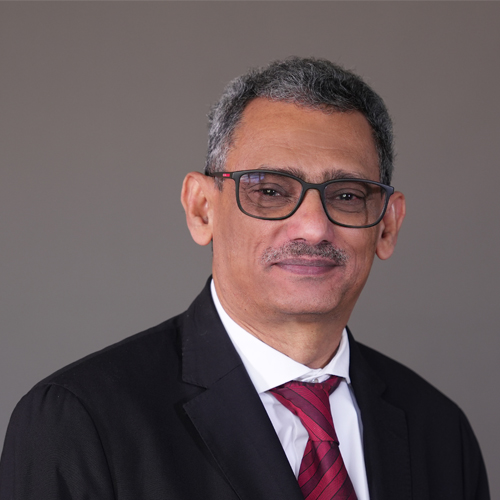
Dr. Hamad Odhabi
Vice Chancellor for AI and Operational Excellence, Abu Dhabi University (UAE)
Speakers
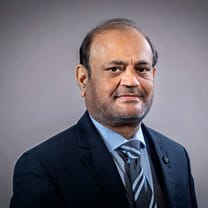
Prof. Thenkurussi Kesavadas
Vice President for Research & Economic Development at the University at Albany, State University of New York (USA)
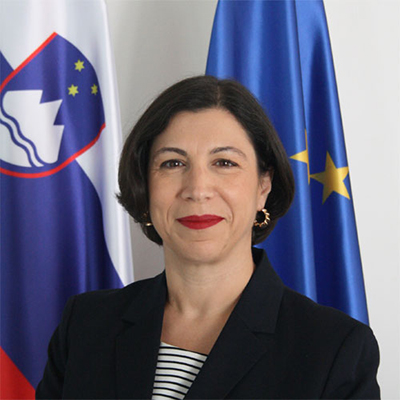
H.E. Natalia Al Mansour
Ambassador, Embassy of the Republic of Slovenia in Abu Dhabi (Slovenia)
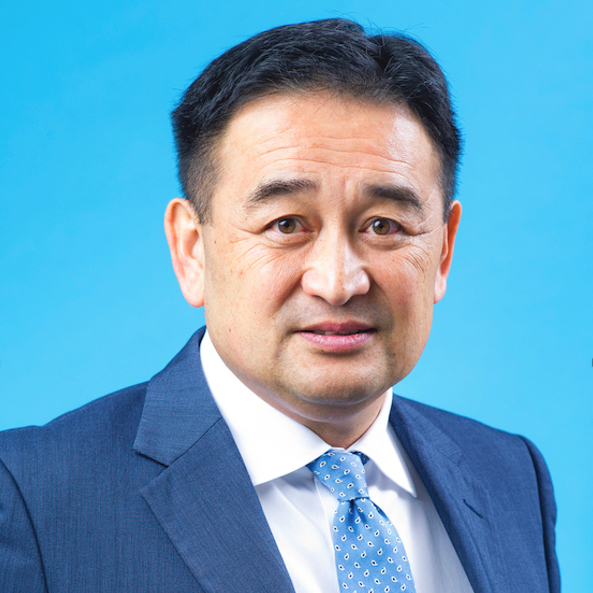
Prof. Wen Jung Li
Chair Professor, Dept. of Mechanical Eng. Vice-President (Talent and International Strategy), City University of Hong Kong (China)
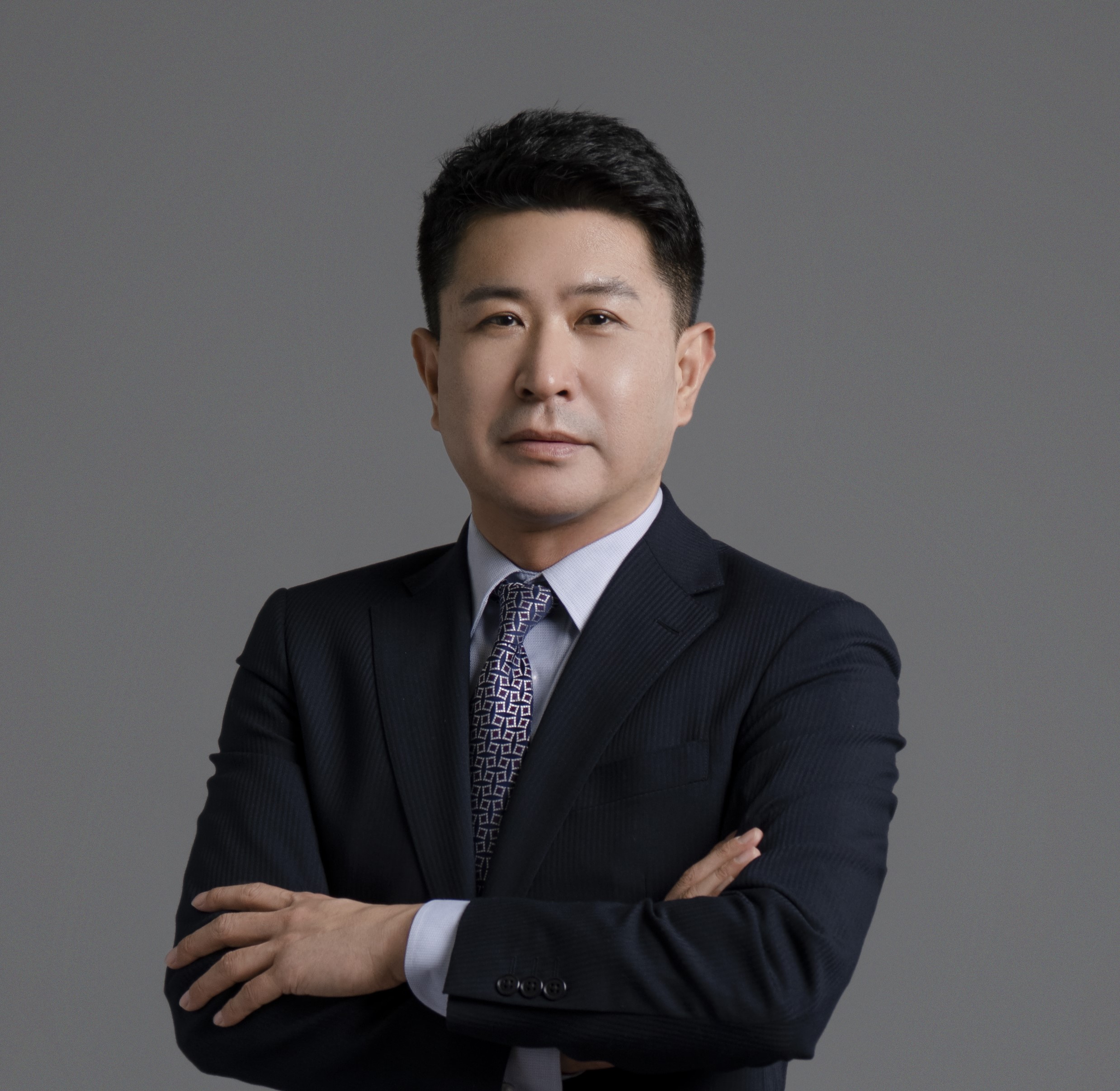
Prof. Jian Zhang
Deputy Secretary General of GAUC, and Vice Dean of the Institute of Climate Change and Sustainable Development, Tsinghua University (China)
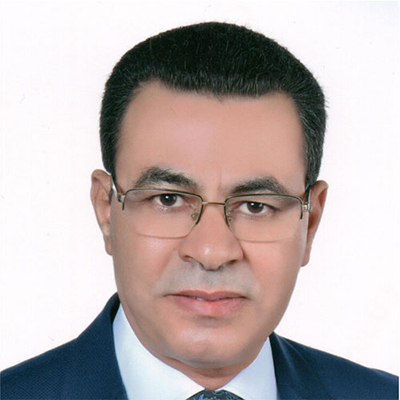
Prof. Mahmoud Abdel-Aty
President of Arab Impact Factor and Dean of Research, Ahlia University (Bahrain)

Dr. Rana Sawaya Zeitounie
President, University College of Bahrain (UCB) (Bahrain)
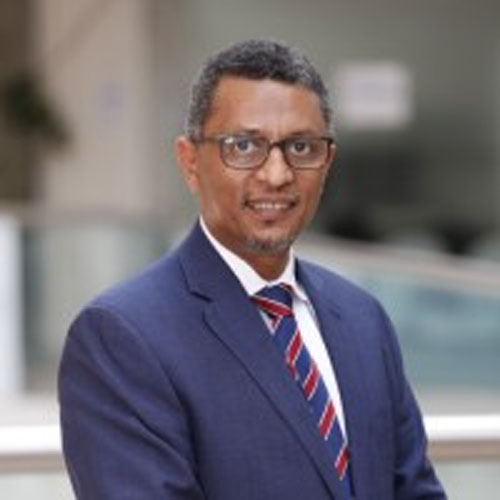
Prof. Tillal Eldabi
HOD of Business Analytics, Circular Economy, and Entrepreneurship, University of Bradford’s School of Management (UK)
15:00-16:00 ICASF Panel
Overview: This discussion will critically examine how green jobs, circular economy models, and innovative business practices are reshaping the job market and enhancing employability. It will explore the role of sustainable business models and green jobs in addressing both economic and environmental challenges.
SDG Alignment: This panel supports SDG 8 (Decent Work and Economic Growth), as it focuses on the creation of sustainable jobs and economic growth opportunities. It also promotes SDG 12 (Responsible Consumption and Production), by highlighting the importance of circular economy models, and SDG 13 (Climate Action), as green jobs and business innovations play a key role in addressing climate-related challenges.
Objectives: The objective of this panel is to explore how green jobs and circular economy principles are contributing to sustainable employment and economic growth. The discussion will assess how businesses can incorporate sustainability into their models to drive economic and environmental benefits. Furthermore, it will focus on the skills and competencies required for individuals to thrive in a green economy, ensuring that employability is enhanced through sustainability-driven industries.
Moderator
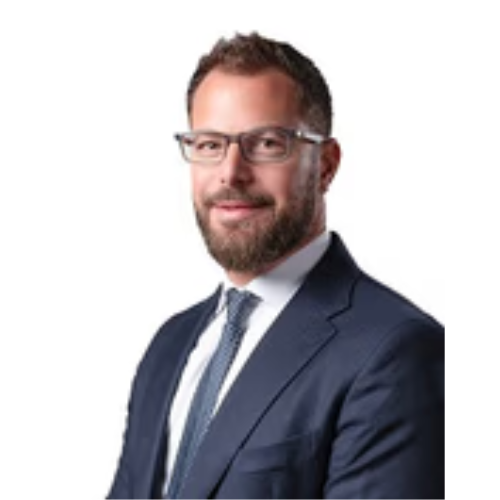
Prof. Jean-Paul Arnaout
Dean College of Business, Abu Dhabi University (UAE)
Speakers
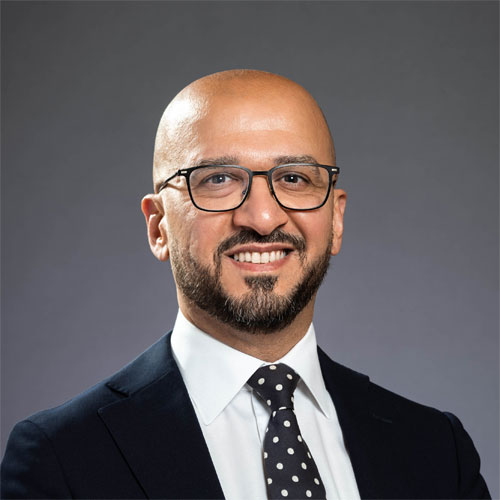
Mr. Ihsan Zakri
Vice President, EMEA Growth and Engagement, AACSB (USA)
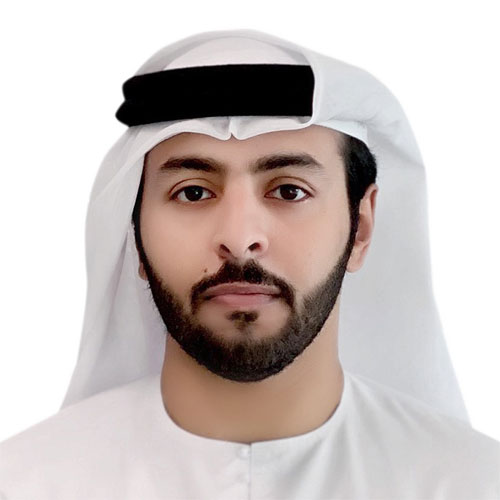
Mr. Amer Al Ahbabi
Global Board Member, Institute of Management Accountants (IMA) & Chairman, Vertix Holdings (UAE)
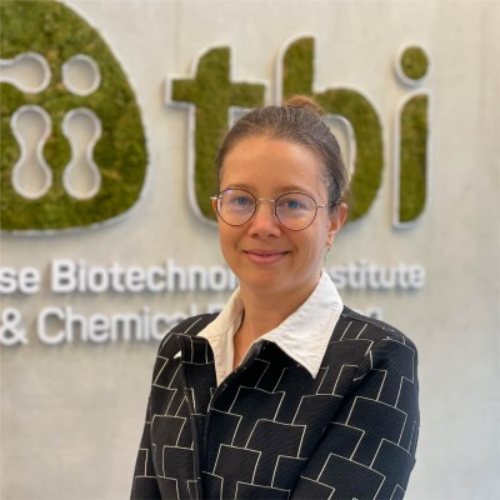
Dr. Lorie Hamelin
Chair Professor, Federal University of Toulouse (France)
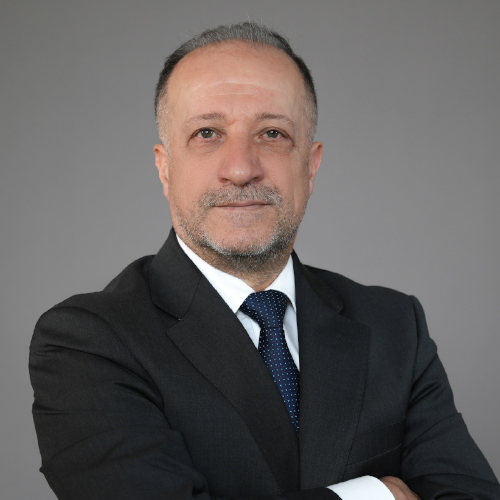
Dr. Chakib Farhat
Dean of Student Affairs, Abu Dhabi University (UAE)
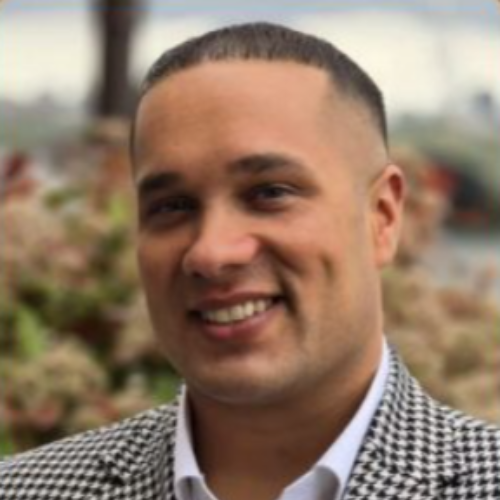
Dr. Chris Desai
Award-Winning CEO at UOCEAN® 2050, Founder of The Vayyu Foundation (UK)
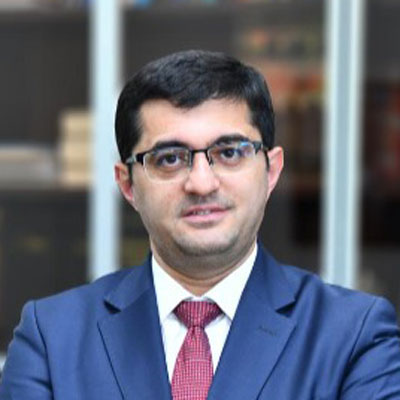
Prof. Raphael J Heffron
Dean of College of Law, Abu Dhabi University (UAE)
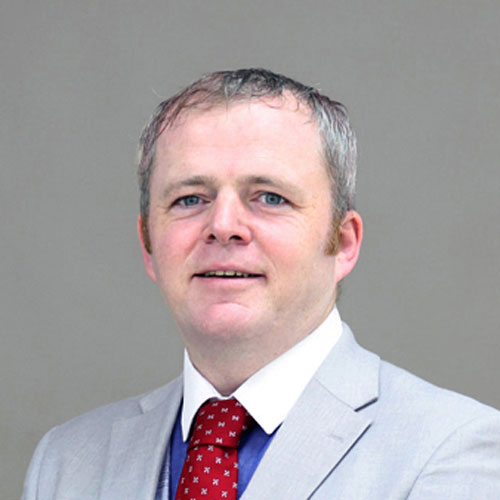
Prof. Rufat Azizov
Rector, Azerbaijan State Oil and Industry University (Azerbaijan)
16:00–17:00 ICAFS Panel
Overview: The session aims to identify the policy levers that best convert proven campus pilots into scalable models and national standards, to chart pathways for research commercialization with industry, and to align curricula and micro-credentials with the skills demanded by Net Zero transitions. It will work toward shared approaches and emerging alignments on harmonized metrics for Scope 1–3 emissions and impact KPIs across networks, and it will propose a time-bound collaboration mechanism—a Net Zero Universities Taskforce—with a 12-month action plan focused on developing frameworks to deliver on shared goals and sustain collective progress.
SDG Alignment: The panel directly advances SDG 13 (Climate Action) by focusing on credible mitigation roadmaps and resilience planning, and SDG 17 (Partnerships for the Goals) through cross-network collaboration, shared metrics, and co-funded projects. It supports SDG 4 (Quality Education) by embedding green skills and lifelong learning pathways; SDG 7 (Affordable & Clean Energy) by scaling campus renewables, storage, and efficiency; SDG 9 (Industry, Innovation & Infrastructure) via university–industry testbeds and commercialization; SDG 11 (Sustainable Cities & Communities) through campus–city living labs and just transition strategies; and SDG 12 (Responsible Consumption & Production) by advancing circular procurement and supply-chain practices.
Objectives: The session aims to identify the policy levers that best convert proven campus pilots into national standards, to chart pathways for research commercialization with industry, and to align curricula and micro-credentials with the skills demanded by Net Zero transitions. It will work toward consensus on harmonized metrics for Scope 1–3 emissions and impact KPIs across networks, and it will initiate a time-bound collaboration mechanism—a Net Zero Universities Taskforce—with a 12-month action plan for joint funding calls, shared datasets, internship exchanges, and a concise policy playbook capturing commitments, templates, and case studies.
Moderator
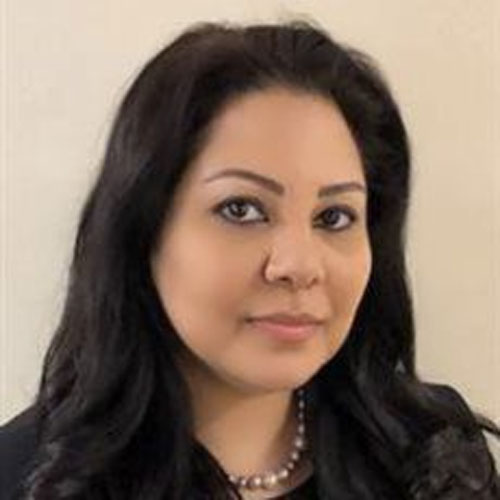
Dr. Rasha Bayoumi
Associate Professor of Psychology Head of Research, University of Birmingham, Dubai Co-Chair, UAE Universities Climate Network (UAE)
Speakers
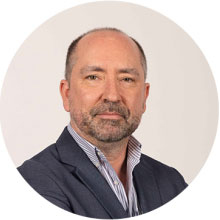
Prof. Philip Hart
Chief Researcher, Renewable and Sustainable Energy Research Center RSERC (UAE)
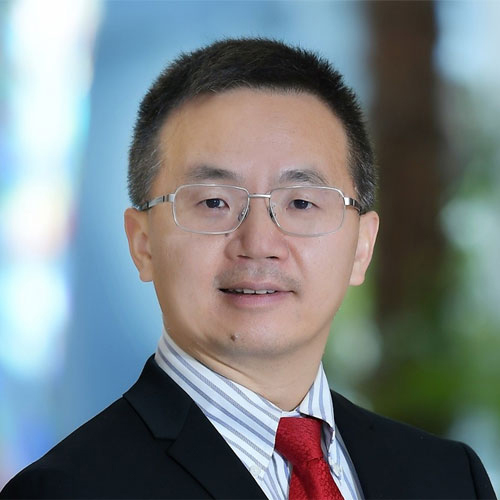
Prof. Samuel Sheng Mao
UCN Co-Chair and R&I Co-Lead (UAE)
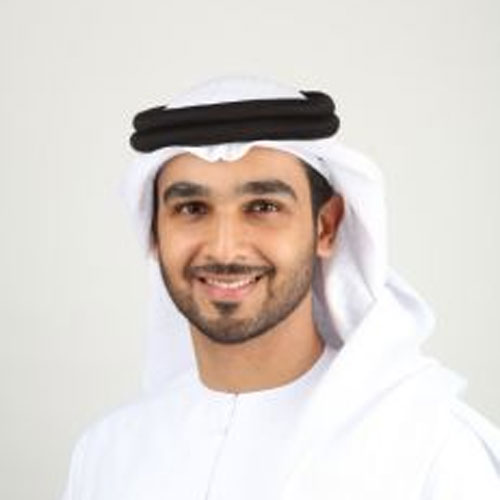
Mr. Qais Alsuwaidi
Vice President, Innovation and R&D, TAQA (UAE)
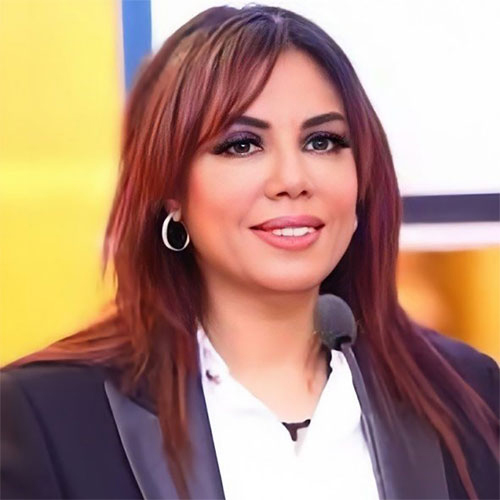
Prof. Randa Mahmoud Rizk Fakher
Secretary General, Arab Council for Social Responsibility; Executive Director, AUKNCCF (Egypt)
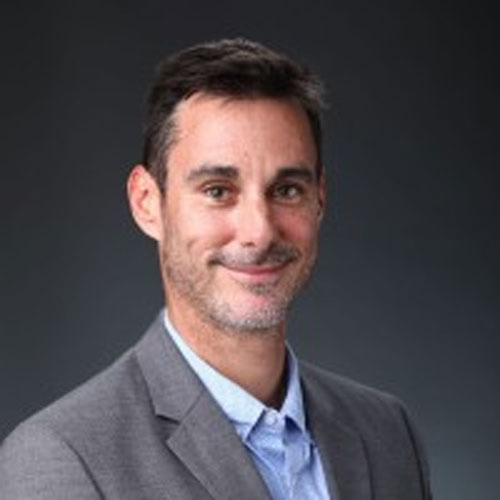
Mr. Daniel Ponce-Taylor
CANIE Europe Vice President, Sustainability & Strategic Partnerships Director Intercultural Ourreach Initiative (IOI) Chair of the Accademia Europea di Firenze - AEF Sustainability Action Group (Italy)
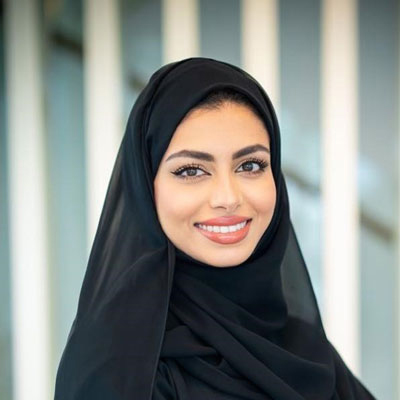
Dr. Sarah Al Hashmi
Associate Director of University Development Office at Abu Dhabi University (UAE)
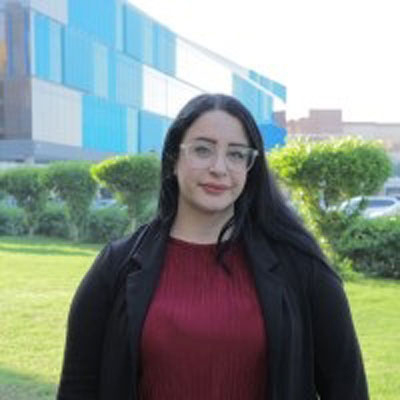
Ms. Maya Haddad
Senior Sustainability Manager, Ajman University (UAE)
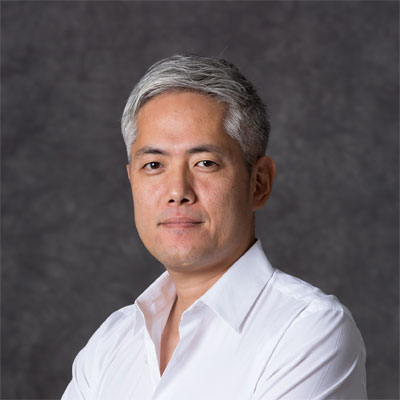
Mr. Hiroshi Shimase
Founder, DAS Driving Acceleration and Synergy (UAE)
17:00-17:30 Coffee Break
18:00-19:30 Closing Ceremony and Group Photo (19:15-19:30)
19:30 – 21:00 Conference Gala Dinner
Venue: Palace Terrace
